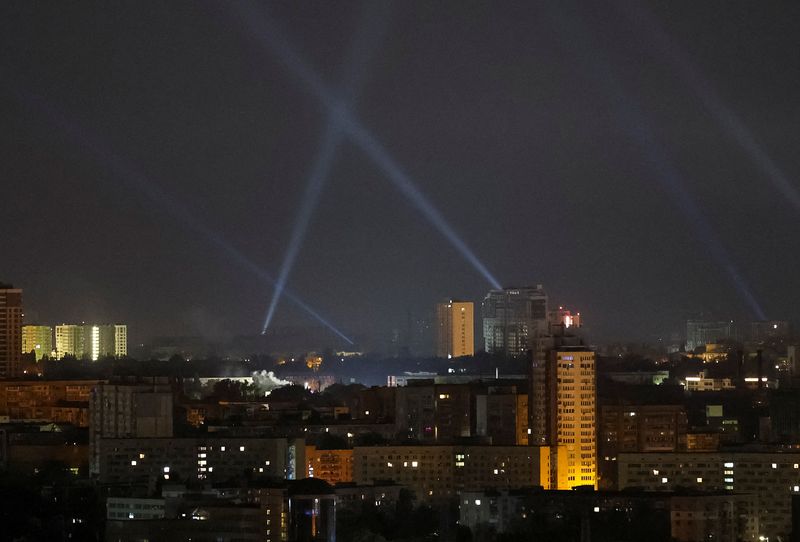
KYIV (Reuters) – Russia’s Monday drone and missile attack forced Ukraine to disconnect several nuclear power units from the grid, posing a risk to the nuclear power sector, a Ukrainian mission to the International Atomic Energy Agency said on Thursday.
“The Russian Federation continues to deliberately target Ukraine’s energy infrastructure, intending to disrupt the operation of the country’s nuclear power plants, which provide most of Ukraine’s electricity,” the mission said in a note.
“Russian attacks pose a significant risk to the stable operation of nuclear facilities in Ukraine and the safety of millions of people.”
On Monday, Russia carried out its “most massive” attack on Ukraine with more than 200 missiles and drones, killing seven people and striking energy facilities nationwide.
Russia stepped up its strikes on the Ukrainian power grid in March in what Kyiv has said looked like a concerted effort to degrade the system ahead of next winter, when people need electricity and heating most.
The mission said Monday’s attack was intended to paralyse the operation of the power generation facilities of Ukraine.
Ukraine has not said that Russia attacked nuclear power plants directly, but hits on transmission and distribution systems have forced the grid operator to reduce production at nuclear power plants or even shut down nuclear units.
The mission said that as a result of Monday’s attack, three out of four power units of the Rivne nuclear power plant were disconnected from the grid.
Another nuclear power plant, the South Ukrainian, was forced to decrease its output.

“Due to fluctuations in the national power grid caused by Russia’s attack, at 1710 (EEST}, power unit 3 of the South Ukrainian NPP was disconnected from the grid,” the mission added.
Ukrainian officials have said the country has lost about half of its generating capacity so far in the war, and now most of its power needs are covered by electricity produced by three Ukrainian nuclear power plants.
This post is originally published on INVESTING.




